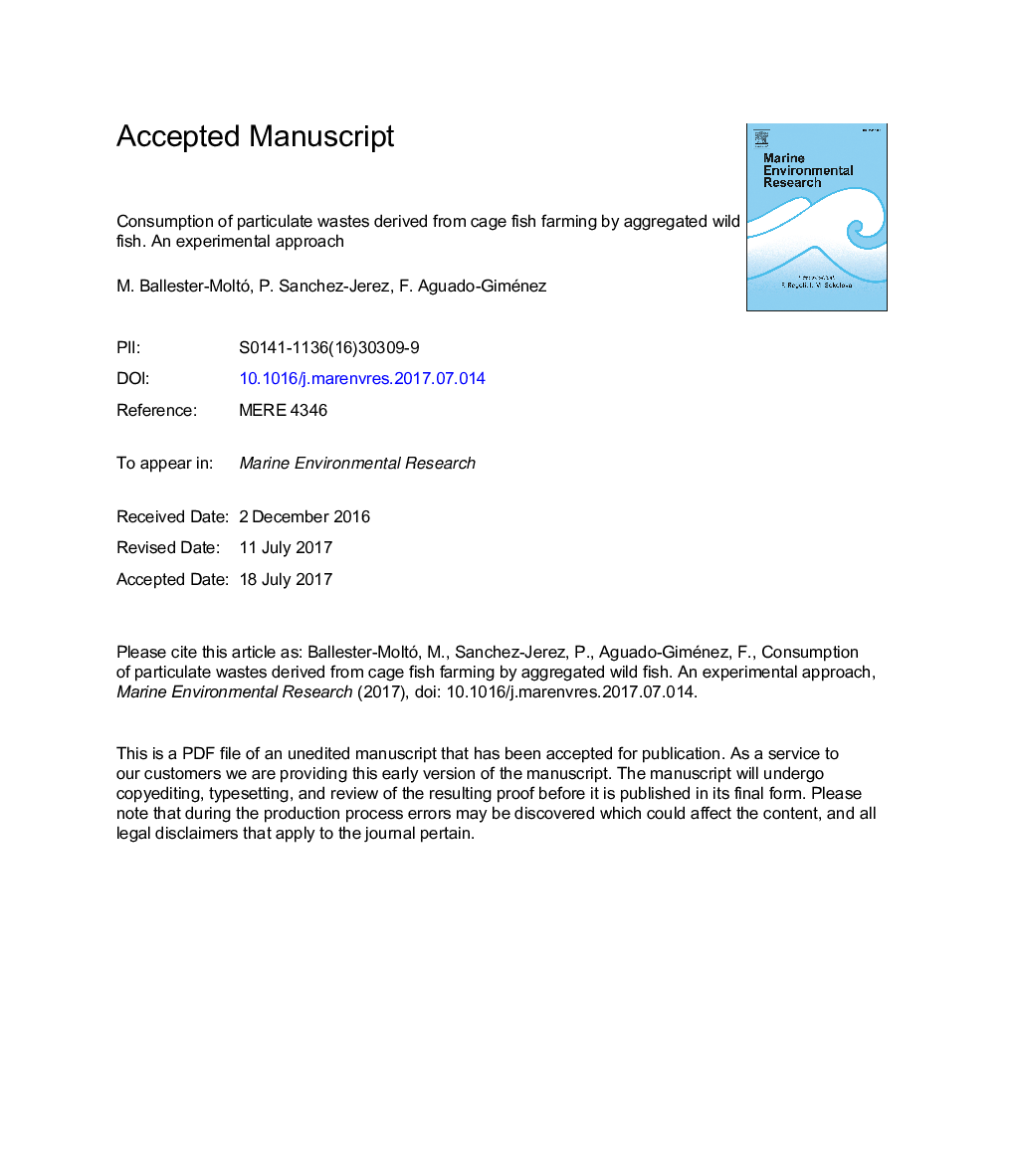| Article ID | Journal | Published Year | Pages | File Type |
|---|---|---|---|---|
| 5766155 | Marine Environmental Research | 2017 | 24 Pages |
Abstract
Particulate wastes derived from cage fish farming are a trophic resource used by wild fish. This study assesses waste consumption by wild fish and the impact on the final balance of wastes. Consumption was determined according to the difference between the particulate matter exiting the cages and that reaching 5Â m away at three different depths, in the presence and absence of wild fish. Wild fish around the experimental cages were counted during feeding and non-feeding periods. A weighted abundance of 1057 fish 1000Â mâ3 consumed 17.75% of the particulate wastes exiting the cages, on average. Consumption was higher below the cages, where waste outflow was greater. However, waste removal by wild fish was noteworthy along the shallow and deep sides of the cages. Wild fish diminished the net particulate wastes by about 14%, transforming them into more easily dispersible and less harmful wastes. This study demonstrates the mitigating potential of wild fish in reducing environmental impact.
Related Topics
Physical Sciences and Engineering
Earth and Planetary Sciences
Oceanography
Authors
M. Ballester-Moltó, P. Sanchez-Jerez, F. Aguado-Giménez,
